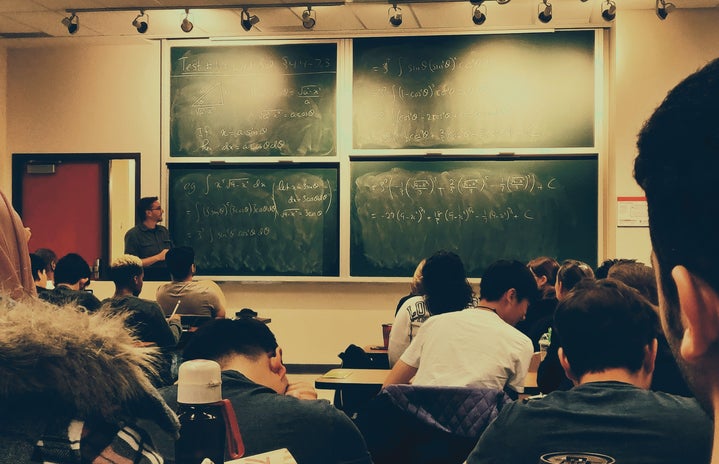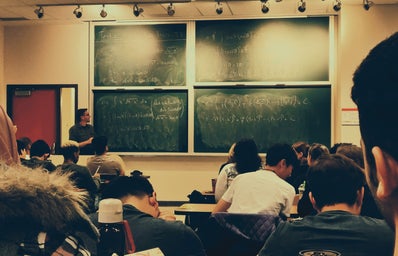Recently, there has been an increased interest in how modern structures in the United States still uphold racist practices dating back to the time they were constructed. Many conversations have centered around the education system–how the system favors one race or another, whether or not (and how) teachers should approach discussing racism in classes, and whether certain areas of history should be glossed over or altered in order to protect reputations and patriotism. There is a great deal of discourse surrounding how to tackle each topic, obviously varying from state to state, party to party, and person to person.
As a second-year student studying literature and education in hopes of becoming an English teacher, a lot of my classes have held detailed and passionate discussions about these topics. Most of the questions that come out of my classes in particular are how we, as (mostly white) up and coming teachers of diverse student bodies, can practice anti-racism on a personal classroom level. While I acknowledge that I still have a lot to learn (in fact, I’ll probably never stop learning) about anti-racism in my classroom, I wanted to explore the beginner-level knowledge I’ve gained, in the context of a critical pedagogy, about how new teachers can practice anti-racism.
The first step to fixing any issue is acknowledging that there’s a problem in the first place. When discussing anti-racism, this seems to me to have two levels: the institutional/systemic and the personal. Nowadays, systemic racism is talked about much more than the personal, and for this reason, I think that people know more about how it affects our schools. While I do think it’s important whenever possible to emphasize the huge disadvantage that many students face as a direct result of the systems being designed for someone else, I do think that many people today use systemic racism as a kind of excuse for their own apathy and, oftentimes, feelings of cluelessness on how to actually dismantle racist infrastructures. People tend to blame systemic racism for the ways they think and act, as well as issues that appear in front of them every day. And while yes, systemic racism is to blame for many, many blunders in society today, no progress can be made if we keep throwing our hands up, saying, “It is what it is!”
James Baldwin writes in his speech “A Talk to Teachers” in 1963, “It is inconceivable that a sovereign people should continue, as we do so abjectly, to say, ‘I can’t do anything about it. It’s the government.’ The government is the creation of the people. It is responsible to the people. And the people are responsible for it.” We are a country driven by a desire for the people to lead. While the government’s lack of action is beyond discouraging, each individual still holds the power to practice anti-racism within their own sphere of control.
This realization was a turning point for me in my educational journey. I admit to being one of the masses; feeling helpless on how to implement anti-racism and blaming the institution for my lack of understanding and control of the subject. The realization that anti-racism is a journey I can take myself, and that it’s possible to make a difference beginning with my own internal deprogramming, was empowering in itself. So, how can I, as a teacher, begin this journey? The first step might be the hardest: work through the discomfort that I, as a white person, feel surrounding discussions of race.
The Oxford Dictionary defines white fragility as “discomfort and defensiveness on the part of a white person when confronted by information about racial inequality and injustice.” What I’ve discovered recently is that white fragility can also apply to just discussing race, in the form of nervousness surrounding saying the wrong thing, so consequently not saying anything at all. It turns out that the act of not saying anything can be just as harmful. Megan Lynch wrote in her paper “The Hidden Nature of Whiteness in Education: Creating Active Allies in White Teachers” that “In order to be the best possible teacher for all students, teachers must have an intimate, emotional connection to race, including his/her racialized identity, and work against social constructions of Whiteness to reject the current state of schooling.” Without an in-depth understanding of our own race and the implications that come with it, white teachers will have huge gaps in their understanding of how whiteness especially is ingrained so deeply into educational structures.
Understanding and reckoning with our own racial identity also impacts interactions with students. Racialization is a part of life beginning very early on– that’s just a fact that we all understand to be true on some level. Students of all ages are discovering their identities and the societal roles they want to fill, and race is often a big part of that journey. Refusing to dive into these topics as an educator would be a disservice to students looking for a space for self discovery. By embracing the discomfort and destigmatizing the concept of racial identities in classrooms, teachers can encourage acceptance and diversity on the path to anti-racism. Only then can the classroom become a place where coming of age is encouraged and celebrated, rather than kept hush hush.
Oftentimes, teachers tend to perceive students as in need of “fixing” or looking for someone to “save” them, when the truth is that they are just as complex and thoughtful as the adults around them, and are looking for someone to take an educational journey with them, rather than just patronizing them. Coming to terms with uncomfortable topics, like race, makes it possible for teachers to engage with students’ learning development and provide an enriching experience for the whole classroom. In the case of white teachers, this effort is directly combating the harmful “white savior” mindset that teachers tend to fall into. The realization that no student is “damaged” or in need of a savior is another stepping stone into an equitable and anti-racist classroom environment.
Baldwin ends his speech by saying, “I began by saying that one of the paradoxes of education was that precisely at the point when you begin to develop a conscience, you must find yourself at war with your society. It is your responsibility to change society if you think of yourself as an educated person.” Taking ownership of our own fragility and implicit aversion to discussing race is the first (of many) steps to take in order to implement anti-racist educational pedagogies. Internal deprogramming of the effects of white supremacy within our own educational backgrounds is the first step to waging war with an oppressive education system and moving towards a better one. And while I wholeheartedly admit that I am a beginner who is only just starting to work on my own deprogramming, I think that sometimes all someone needs is a starting point. I hope that this writing can serve as that on some level!



